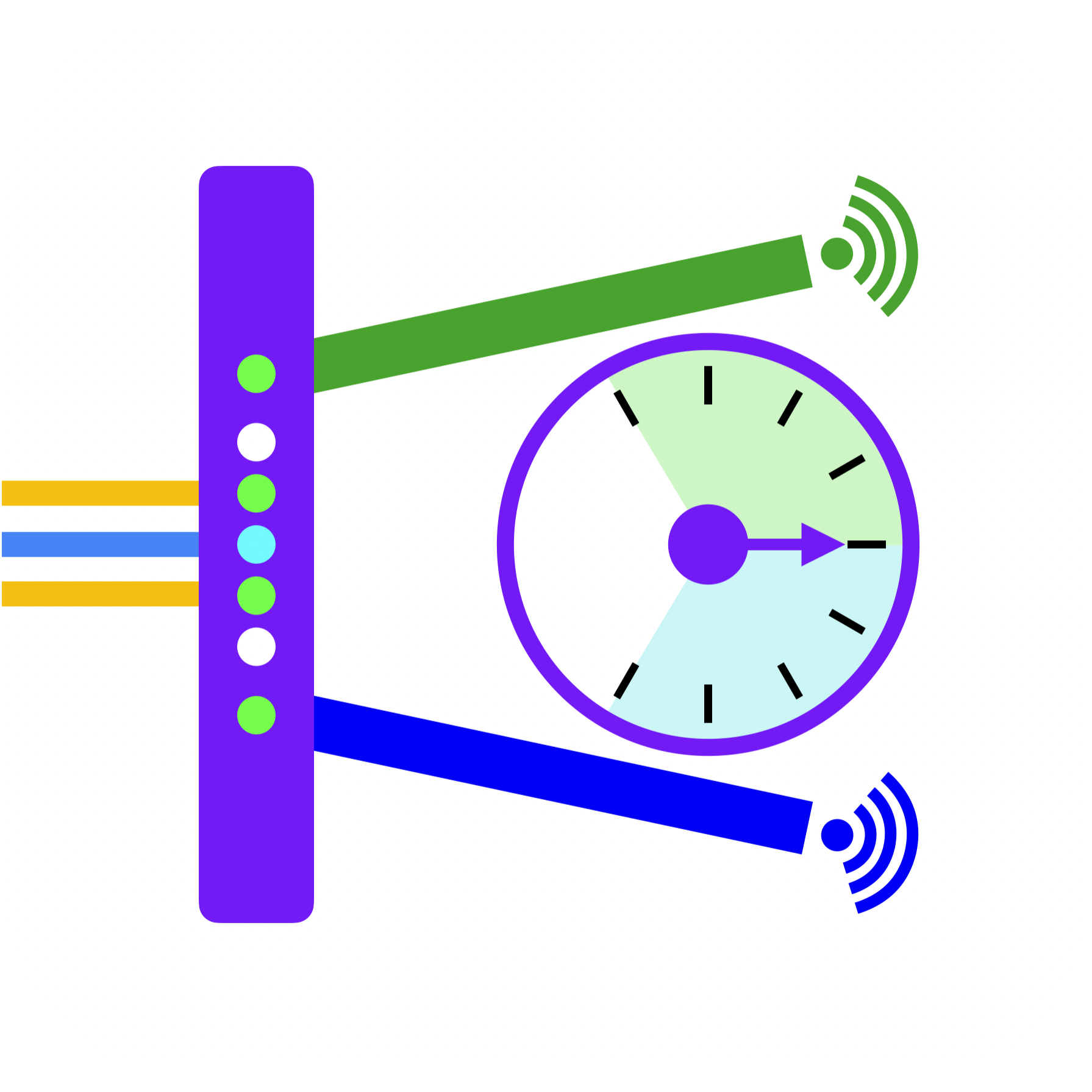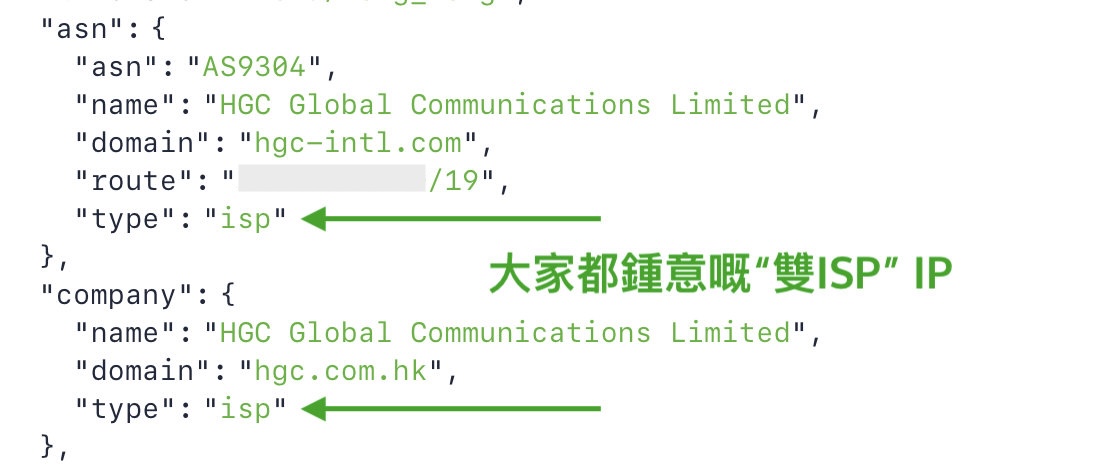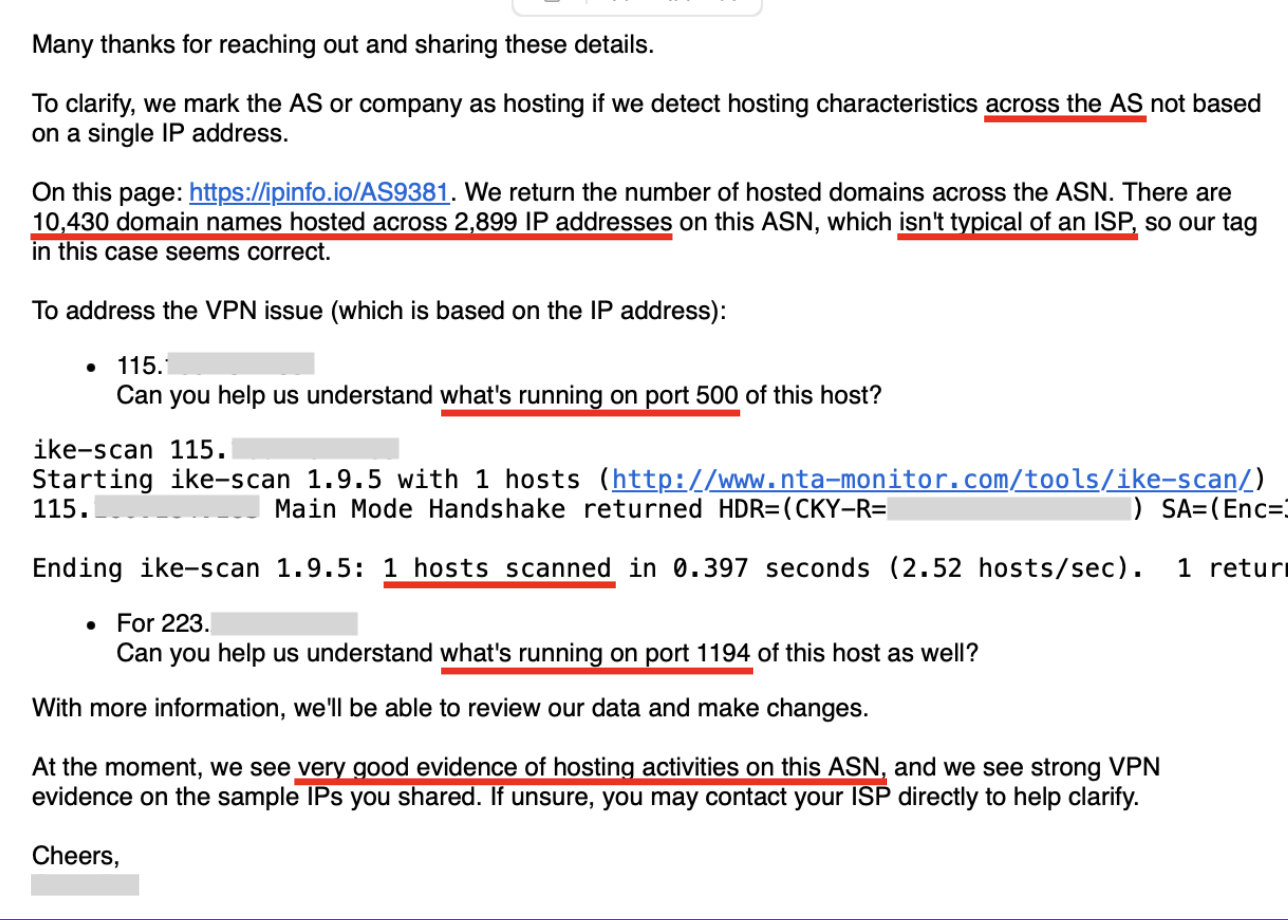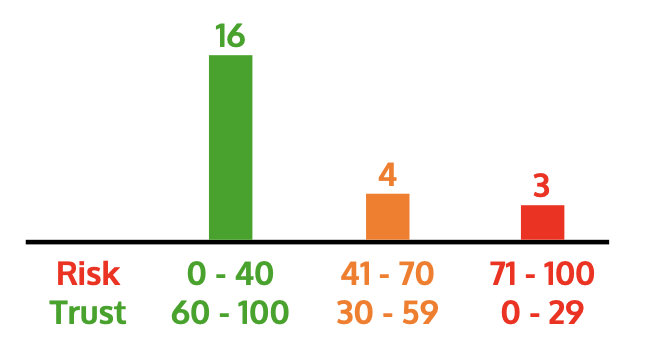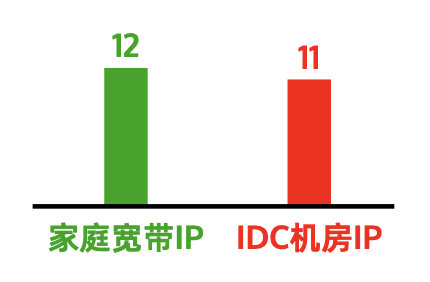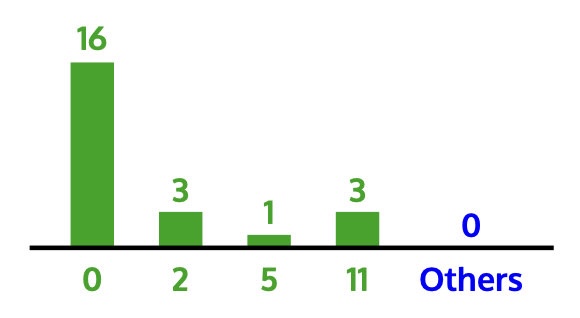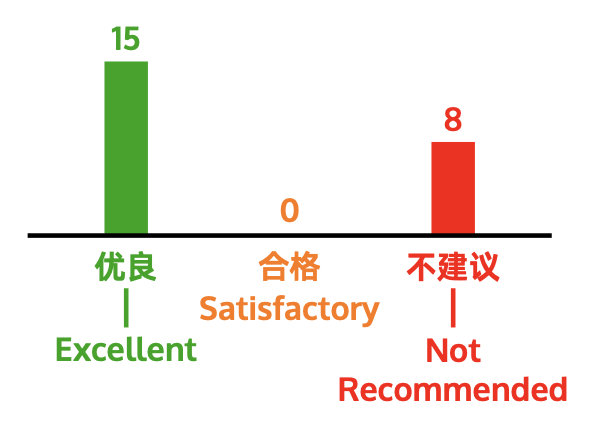Everyone, especially Mainland students abroad🧑🎓 and company users, cares about the risk score of each IP and whether online streaming services are accessible🎬.
As mentioned on other channels and articles online, using proxies⛓️💥 with thousands of (or even more) other users increases the risk of account ban🚫, making Residential IPs an essential for Mainland users.
Due to the very large demand of Residential IPs and relevant VPS servers by Mainland users, they can be sold out very quickly🫙 and even majorly abused⚠️, increasing the risk score of such IP addresses.
But do you know how do the IP addresses of the HK broadband that we use every day look like?
To answer this question, I spent 3 days for the WiFi testing under 23 WiFi hotspots🛜 around Hong Kong.
My Test Script: https://github.com/Kensear/ip-check-hk-personal
Video
Watch the YouTube video🎬 below for full test progress:
About this Research/Experiment
What were Mainly Tested?
23 places with WiFi hotspots🛜 were random selected, including:
- Free WiFi in Coffee Shops☕️, Shopping Malls🏬, etc.
- WiFi in 4 HK Universities🏫
The following information were collected for each WiFi hotspot:
- ISP Info, including AS (Autonomous Systems) Number (e.g., AS3363, AS4760)
- Whether Accessible to (or Banned by) Streaming Services (e.g., Netflix)
- IP Quality and Risk Score
- DNS Servers Used (whether ISP or Public DNS (like >8.8.4.4
- Routing and Latency to Major 3 ISPs (Telecom, Mobile and Unicom) in Mainland
Reminder
You may ignore the test results of TikTok, ChatGPT, Gemini and Claude as they are not available in HK region.
WiFi Testing for HK Universities
As a HK university student🧑🎓, it's my great opportunity to test the "eduroam" WiFi of each university.
It's worth to know that it takes 5 to 12 seconds⏳ to load content (like WeChat messages) when using Mainland websites and apps under my university WiFi🏫 with latencies around 150ms🐢 (discovered via traceroute/mtr commands, BGP routing issues).
This issue does not exist loading under just 1 second, however, when using them under broadbands or mobile data (e.g., HKT, HKBN and CMHK).
For this reason, I did another experiment🧪 testing the "eduroam" WiFi of 8 HK universities around HK in one day. Please stay tuned for my latest articles for more information.
Two (2) months later followed by my report to my university IT department, the routing was successfully fixed✅ with latencies 10-20ms only.
HK Local ISPs
The following commonly-seen HK ISPs were discovered (for reference only) during this WiFi testing and basd on Residential IP VPS on the Internet:
Swipe Left/Right for Full Table Content
| Name | Hostname Suffix | AS Number | Type |
|---|---|---|---|
| HKT (PCCW) (including HKT Enterprise) |
netvigator.com, imsbiz.com | AS4760 | H/B |
| HKT GPRS Network (PCCW) | pccw-hkt.com | AS38819 | M |
| HKT-DIA (PCCW) | imsbiz.com | AS4515 | B |
| HKBN | ctinets.com | AS9269 AS10103 |
H/B |
| WTT (HKBN Enterprise / HKBNes) | AS9381 | B | |
| CMHK | hk.chinamobile.com | AS9231 AS137872 |
H/M |
| HGC | **-on-nets.com / hutchcity.com | AS9304 | H/B |
| 3/Three | AS10118 | H/M | |
| SmarTone | smartone.com | AS17924 | H/M |
| i-Cable | hkcable.com.hk | AS9908 | H |
| JUCC (Joint Universities Computer Centre) (University Only) (similar to CERNET in Mainland) |
AS3662 | B |
H: Home Broadband / B: Business Broadband / M: Mobile Data
Result Data
The experiment result data is available in JSON, CSV and PDF format you can download below. You may also refer to the YouTube video at the top⬆️.
This is for better experience of showcasing experiment results.
Summary & Statistics
IPinfo
Many people enjoy IP addresses with both "ISP" labels for ASN and Company respectively (Both "ISP") by IPinfo based on other online videos and articles.
In my real life, however, not all IP addresses belong to Both "ISP" type.
The following table shows the IP address types collected in this experiment:
| Both "Hosting" | WTT (HKBNes) |
| Both "Education" | All University ASNs |
| Both "ISP" | All Other ISPs |
You may wonder why WTT/HKBNes is labelled as Both "Hosting" (and even "VPN") type by IPinfo despite a real ISP (Internet Service Provider)?
I have contacted IPinfo before.
In its email reply with the evidence from its mass scanners, however, IPinfo mentioned the large number of domain names pointed to (DNS records) and VPN servers under this ASN.
For this reason, this ASN was labelled as "Hosting" and my appeal was not successful.
It's worth to note that IP labels (e.g., Hosting and VPN) do not directly impact the accessibility to streaming services. That means, we can still use such services as usual despite Hosting/VPN labels.
The IP ban of each Internet (especially streaming) service is actually based on the number of users/abusers regardless of IP types (whether Home Broadband, Internet Data Centre (IDC), etc.).
IPData
The trust scores of real residential and business broadbands are usually between 60% and 70% based on the statistics of IPData.
There are also a few IP addresses with trust scores over 80% to 90% and a few under 30% (high-risk) due to some open ports (e.g., Port 80/443).
(Trust Score) Mean: 62.57; SD: 24.52; Min: 3; Max: 96
(Risk Score) Mean: 37.43; SD: 24.52; Min: 4; Max: 97
Ping0
The risk scores of real residential/business broadbands were all under 25% based on statistics of Ping0.
Mean: 12.70; SD: 5.96; Min: 3; Max: 25
Nevertheless, nearly half of the IPs tested were labelled as red "Internet Data Centre (IDC) IP" instead of green "Home Broadband IP".
Scamalytics
The statistics of Scamalytics shows discrete data with 0% risk score for many IPs.
This indicate that real broadband IPs majorly have clean records.
0%: 16; 2%: 3; 5%: 1; 11%: 3
IP Jiance (IP检测)
IP Jiance (IP检测) website mainly targets Mainland users using outside Internet services for their business with the need of dedicated IPs (i.e., not shared with anyone else).
Nearly 1/3 IPs are shared by more than one (1) user (i.e., many user accounts under the same Internet service) and so labelled as red "Not Recommended", likely a public proxy service (a.k.a., 机场 Airport).
优良 (Excellent): 15
合格 (Satisfactory): 0
不建议 (机场) (Not Recommended due to Public Proxy): 8
There is something important but interesting to know.
For my university WiFi IP address, IP Jiance shows green "Excellent" during winter and summer but red "Not Recommended" during regular terms (i.e., Fall/Spring Term).
From my prediction, many Mainland students live in Halls (dormitory) and so register accounts on Internet services like Google, Instagram and WhatsApp under the university WiFi IP ranges.
IPQS
Many IP addresses, regardless of whether real broadband IPs or IDC IPs, are labelled as VPN, Proxy or Abuser by IPQS.
Many IP address show risk scores of either 0 or 100 with a very large Standard Deviation (SD): 42.97
From my prediction, the risk scores can be determined by the number of users for IPQS regardless of the open ports.
Mean: 58.32; SD: 42.97; Min: 0; Max: 100
My Summary
Now, move on to my personal summary.
All IP addresses tested among the 23 places are Native IPs rather than Broadcasted IPs possibly with wrong country/region labels.
A very few network may not have their routers or firewalls set up properly with open ports, being labelled as Server, Proxy or VPN types.
Other than Wikipedia Editing, all streaming services, including Instagram Licensed Audio library, can be used by all IP addresses (all are green "Yes").
Hosting, VPN and Proxy labels are for reference only. This only indicates open ports but doesn't mean it will definitely be banned by websites/services.
Reminder
For safety reason, preventing IP abuse and protecting your user accounts, don't give your Residential IP to any stranger on the Internet (as a Residential Proxy)!
